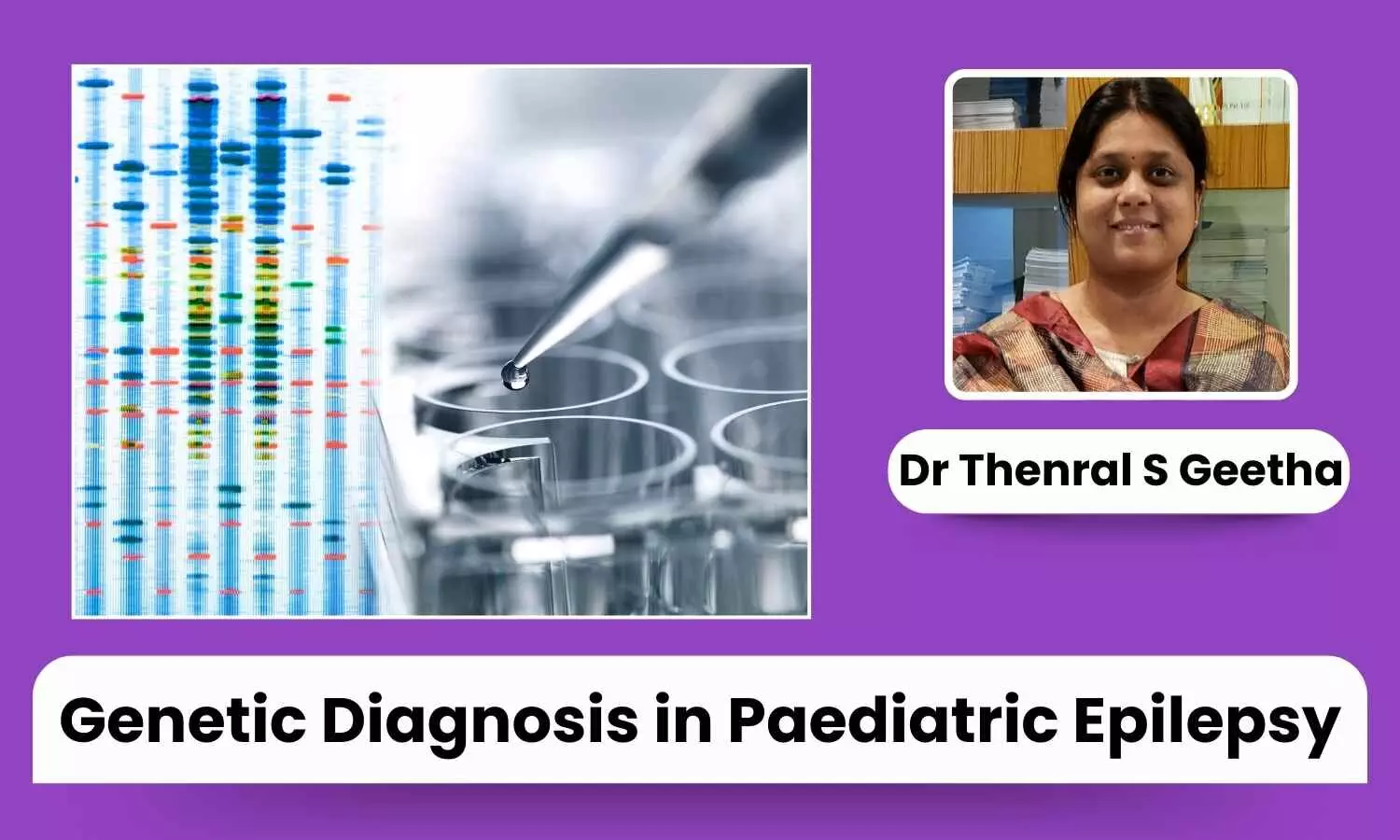Genetic Diagnosis in Paediatric Epilepsy: Advancing Precision Treatment and Better Outcomes - Dr Thenral S Geetha

Epilepsy is a neurological condition that impacts children globally, leading to recurrent seizures stemming from abnormal brain activity. In paediatric cases, epilepsy can significantly hinder developmental progress, cognitive function, and overall well-being.
Conventional treatment methods typically involve trial-and-error approaches with medications, potentially resulting in delayed treatment and exposing children to unnecessary side effects.
Nevertheless, recent progress in genetic diagnosis is revolutionizing the management of paediatric epilepsy by providing personalized treatment strategies that target the underlying genetic factors of the disorder.
Role of Genetics in Epilepsy
Childhood epilepsy has a strong genetic component, with many cases stemming from mutations that disrupt normal brain function. These variants can affect important proteins in the brain, leading to seizures.
Identifying these mutations is crucial for accurate diagnosis and treatment. Genetic testing plays a key role in classifying different subtypes of epilepsy, offering valuable information about prognosis and guiding treatment decisions.
For example, specific genetic variants may indicate a poor response to standard anti-seizure medications, while others may suggest alternative treatments. Early identification of these mutations can also help in genetic counselling, providing families with important information about the risks of recurrence and future pregnancies.
Power of Genetic Testing
Advancements in genetic testing, particularly Next-Generation Sequencing (NGS), have significantly impacted the diagnosis of epilepsy, especially when seizures are not well-controlled.
NGS enables clinicians to efficiently analyse multiple genes associated with epilepsy, offering a more precise diagnosis compared to traditional methods.
There are several types of genetic tests available for epilepsy diagnosis, including Chromosomal Microarray Analysis (CMA) for detecting large chromosomal abnormalities (particularly in those presenting with dysmorphic features or congenital abnormalities), Single Gene Testing targeting specific genes known to cause epilepsy, Gene Panels testing a group of genes commonly linked to epilepsy, and Whole Exome Sequencing (WES) for analysing the entire protein-coding regions of the genome.
These tests not only confirm the diagnosis but also guide treatment decisions, ensuring that patients receive the most effective therapies based on their unique genetic profile.
Case Study
A notable example of the impact of genetic diagnosis in paediatric epilepsy involves a 2-year-old boy who presented with global developmental delay, various seizure types, autistic traits, and low muscle tone (hypotonia).
Traditional diagnostic methods were unable to identify the root cause of his condition, presenting a challenge for the treating physician. Upon undergoing genetic testing through Whole Exome Sequencing (WES), a crucial genetic variant in the SCN1A gene was identified.
This mutation is known to cause Dravet Syndrome, a severe, treatment-resistant epilepsy syndrome that typically begins in the first year of life.
Subsequently, the medical team adjusted the boy's treatment plan based on the genetic diagnosis, opting for alternative anti-seizure medications that were better suited to his condition.
As a result, the boy experienced a significant reduction in seizure frequency, improvement in developmental progress, and an enhanced overall quality of life. This case highlights the significance of genetic testing in accurately identifying the cause of epilepsy and avoiding potentially harmful treatments.
Benefits of Genetic Diagnosis in Paediatric Epilepsy Management
Genetic diagnosis offers numerous benefits for managing epilepsy in children. Key advantages include:
- Tailored treatment plans can be developed by identifying the specific genetic mutations causing a child's epilepsy, increasing the likelihood of successful treatments and reducing the need for trial-and-error approaches.
- Timely and targeted treatments can be initiated by detecting genetic causes early, potentially changing the course of the disease and enhancing long-term outcomes.
- Disease progression and treatment responses can be accurately planned by understanding the genetic basis of epilepsy.
- Clinical decision-making can be streamlined, leading to reduced healthcare costs by avoiding ineffective treatments and unnecessary tests.
Future of Genetic-Guided Epilepsy Care
The future of paediatric epilepsy management appears promising, as genetics play a significant role in treatment approaches. Ongoing research into the genetic underpinnings of epilepsy is likely to lead to the development of new, targeted therapies aimed at specific mutations.
Moreover, as genetic testing becomes more integrated into routine epilepsy care, families may benefit from improved counselling and risk assessments, helping them make informed decisions about their child's health.
Genetic diagnosis represents progress in the management of paediatric epilepsy, providing a deeper understanding of the condition's underlying causes and opening the door to personalized treatments.
Through technologies like Whole Exome Sequencing, clinicians can now accurately diagnose complex cases, optimize treatment plans, and improve patient outcomes.
As genetic testing continues to evolve, it holds the potential to reshape epilepsy care for the next generation, offering hope to families affected by this challenging disorder.


